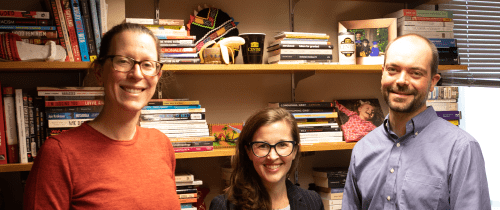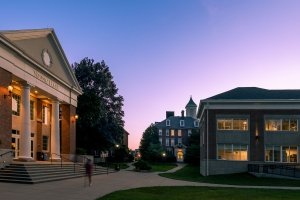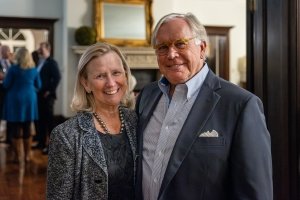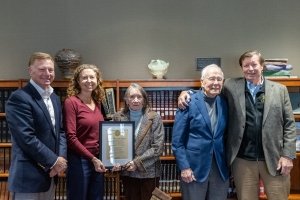
Centre professors engage real-world questions in anthropology publication
Anthropology professors Robyn Cutright, Jeff Shenton and Jamie Shenton have been published in the online magazine SAPIENS.
Each professor wrote on a topical subject that highlighted something we can relate to in our everyday lives: Cutright, the Marlene and David Grissom Associate Professor of Anthropology, wrote a piece on why farming video games are so popular. Jamie Shenton, assistant professor of anthropology, had two publications in the magazine in 2022: One on body positivity, and the other on parenting politics in the U.S. Jeff Shenton, visiting assistant professor of anthropology, highlighted the Sisters of Loretto and land stewardship.
SAPIENS calls itself “a digital magazine about everything human, told through the stories of anthropologists” and Jamie Shenton said that “The magazine has done a great job making anthropology accessible to the public.”
Cutright notes that her essay was sparked by watching her husband play Farming Simulator, a video game that does what its title suggests: It simulates farming and rural life. Other farming games have varying levels of realism, Cutright said.
“As a non video gamer, I didn't get what was so entertaining,” Cutright said. “I wrote the piece in part to try to understand for myself why the game is popular. As an archaeologist of food, I've written and taught a lot about the origins of agriculture and ancient food and farming. I also wanted to connect the game to the past and think about what's unique about our present moment – such a small proportion of people in the US today are actually involved in producing food compared to any other time in human history.
Like Cutright, Jamie Shenton’s works reflect media she and her family engaged with. A commercial for size-inclusive clothing piqued her interest as she watched with her daughter: “How did that commercial make my daughter feel about her relationship to her body through clothing,” she asked. Her piece on body positivity argued that consumption is a root cause of body insecurity – not a solution for it.
Jamie Shenton’s second essay focused on Twitter trends related to the Disney-Pixar film Lightyear, which pushed her and Sarah Koch ’25 to analyze tweets as a case study. She added that anti-LGBTQ sentiment was in much of the Twitter discourse about Lightyear, which features a brief same-sex kiss, the first depicted in a Disney-Pixar film.
“We found that at the heart of criticism of Lightyear on Twitter was a desire for parents to control who their children are in relation to media content,” she said. “There were important lessons about anti-LGBTQ sentiment embedded in this Twitter discourse, too. I hope that readers take away from these essays an appreciation for just how deeply saturated with meaning the minutiae of everyday life can be — a 30-second commercial or a 280-character tweet can speak volumes about our present political and cultural wars. I hope these pieces generate enthusiasm for how anthropology, specifically, can help us all see and think beyond our enculturation, as difficult as that may be.”

Jeff Shenton’s work took a slightly different approach than his colleagues: He looked at the Sisters of Loretto, who, as part of the Catholic Church, form what he calls a bridge between right- and left-wing political stances on the environment. He said his article suggests “we reorient our conversations about environmental catastrophe, in general, and climate change, in particular, away from the language of science and toward the language of kinship.”
“It turns out that for most people in most places and times, kinship was a dominant narrative for thinking about the relationship of humans to the natural world, and in some sense, people find this language more natural and intuitively appealing than the language of quantification that we hear in the media today,” he said. “My thought is that this kind of scientific rhetoric breeds inaction and perhaps even some of the political polarization we see all around us on environmental issues.”



